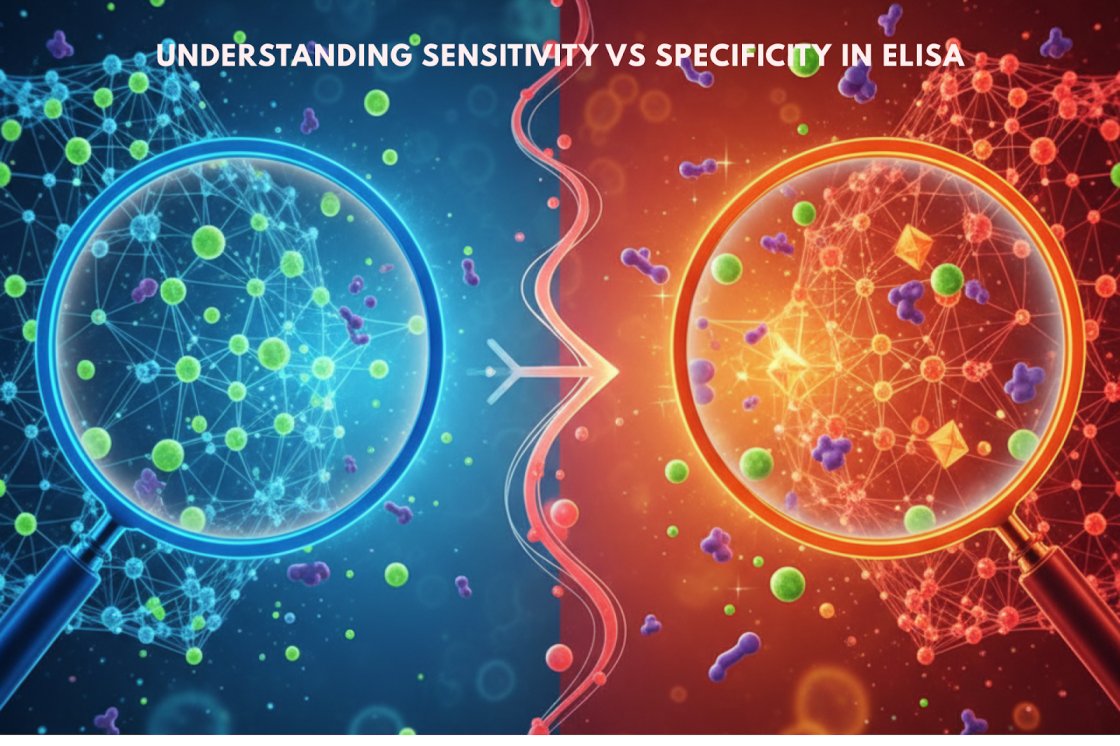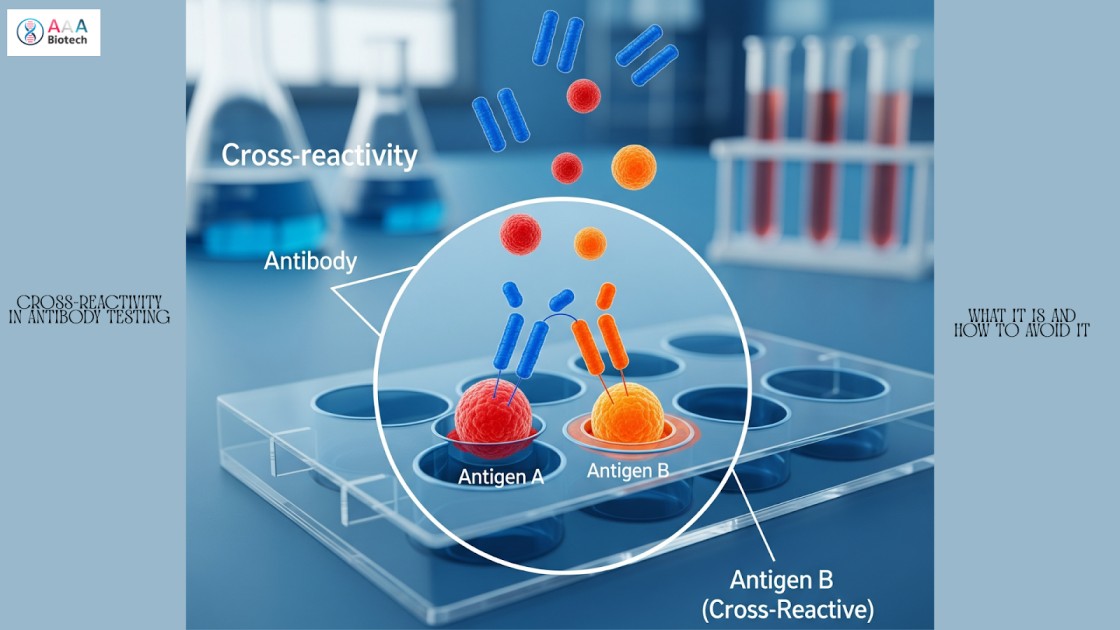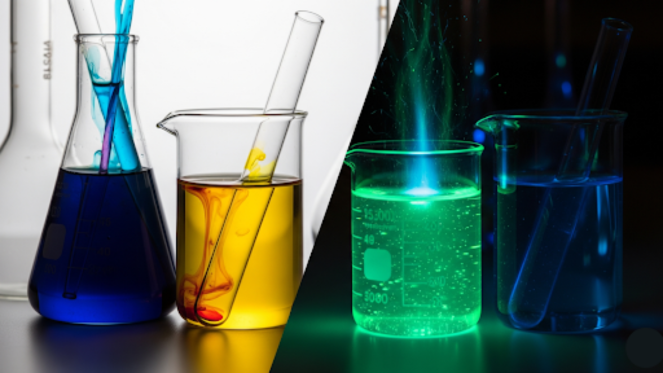What Are Antigens? What are Its Types, Functions and Importance
In this Article
All of the products listed in AAA Biotech’s catalog are strictly for research-use only (RUO).

Understanding Antigens: Types, Functions, & Importance
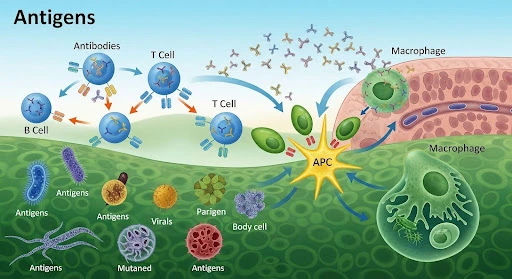
Key Takeaways
Antigens are substances that trigger your immune system to respond and defend your body.
They act like ID tags and help your body know what belongs and what doesn't.
They help fight infections, allergic reactions, and even how the body handles organ transplants and cancer cells.
Antigens are of different types - Exogenous, Endogenous, Autoantigens, Tumor antigens, and Allergens.
An antigen is any foreign substance that enters your body and causes your immune system to react. It usually does so by making your body produce antibodies to fight it off.
Most of the antigens are proteins or sugars. These are found on the surface of microorganisms such as bacteria, viruses, or other harmful pathogens.
Significance
In everyday life, antigens are your body's early warning signals. You can think of them as molecular ID cards. Your immune system scans these "cards" to decide - Is this part of me, or is it a threat? If it is something unfamiliar, your body gets ready to fight against it.
Antigens stimulate immune cells to develop antibodies that help fight infections. The study of antigens helps in vaccine development, understanding why allergies arise, and how your body reacts to organ transplants or cancer cells.
Simply put, antigens are a key part in understanding how your immune system provides protection, and how they are involved when things go wrong.
What Is So Important About Antigens?
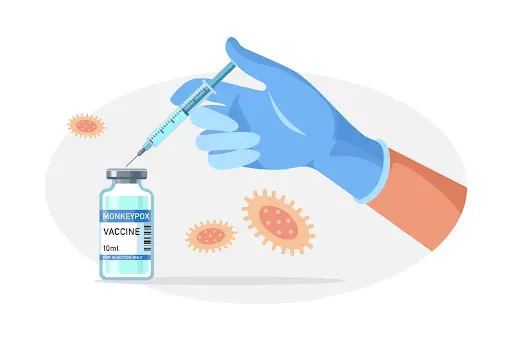
Antigens play a major role in keeping you healthy. They help your immune system recognize when to take action and protect your body from things that don't belong there. Here's why they matter -
They Help Fight Infections
When harmful germs like bacteria or viruses enter your body, their antigens are recognized by your immune system.
This helps your body fight off the infection by producing antibodies and activating other defense cells. Without antigens, your body would not know it's under attack.
They Make Vaccines Work
Vaccines work by using a small, harmless part of a germ, which is referred to as an antigen, to train your immune system.
It helps your body learn how to fight the real pathogens from memory if they ever show up. So, antigens are the reason vaccines can protect you from some serious diseases such as the flu, COVID-19, or measles.
They Help in Diagnosing Diseases
Doctors can test for some specific antigens in your blood to find out if you are sick. For example, COVID-19 rapid tests look for some COVID-19-specific antigens to indicate if you currently have the virus in your system. This makes it easier to diagnose and treat illness quickly.
They Matter in Organ Transplants
Your cells carry special markers called HLA antigens. These help your immune system recognize your own tissues. However, these markers differ slightly from person to person, so when someone receives an organ transplant, doctors have to ensure that the donor's own specific body’s antigens are a good match. If they are not, the immune system can strongly and persistently attack the new organ, seeing it as an outsider or “invader”.
They Are Important In Cancer Treatment
Some cancer cells contain abnormal antigens that normal cells do not have. Scientists are learning how to target these antigens in order to destroy cancer cells without harming the healthier ones. This is the primary mechanism behind some modern cancer treatments.
In short, antigens act like your body's alarm system. They help your immune system know when to protect you and when to stay calm. Further, they work to help prevent, detect, and treat various diseases.
What Are Some of The General Properties Of Antigens?
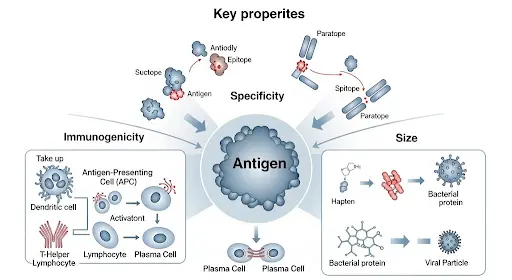
Not all substances act as antigens. An antigen should have certain properties that make it noticeable and able to be recognized by the immune system. Here are some key examples -
1. “Foreignness”
Antigens should be foreign to the body. Your immune system is trained to ignore your own cells. The more "foreign" a substance is, the stronger the immune response it can trigger.
2. Chemical Nature
Most antigens are proteins (amino acids). However, they can also be polysaccharides, lipids, or nucleic acids. Among them, proteinous antigens are the strongest due to their complex structure.
3. Size
Antigens are usually large molecules - the bigger they are, the more likely they are to catch your immune system's attention and cause a strong reaction. There are also smaller molecules, known as haptens, which are not large enough to trigger an immune response on their own. However, if they attach to a bigger molecule, your body can easily recognize and react to them.
4. Specificity
Each antigen has its own special shape, similar to a fingerprint. It helps your immune system differentiate one antigen from another. That's how your body can know the difference between the flu virus and something harmless like food.
5. Immunogenicity
Some antigens are better at helping your immune system react than others. The ability is known as immunogenicity. Things such as how much of the substance enters your body, how it gets in, and how different it is from your own cells. All of these can affect how strong the reaction can be.
6. Degradability
For your immune system to fully recognize an antigen, it usually needs to be divided into smaller parts by some special immune cells. If the antigen can't be broken down, your body may not notice it or respond to it properly.
What Are Some Different Types Of Antigens?
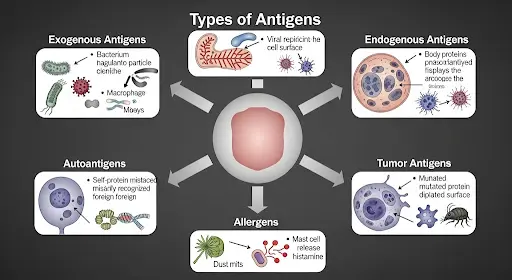
Not all antigens are the same. They can come from different sources and affect the body in various ways. Here is a simple breakdown of the main types -
1. Exogenous Antigens
These are the antigens that enter your body from the outside. They can come from sources such as bacteria, pollen, viruses, dust, or even food. Once they are inside, your immune system recognizes them as foreign and starts fighting back.
Examples
- Bacteria such as Streptococcus
- Viruses such as the flu virus
- Allergens such as pollen
2. Endogenous Antigens
These are made inside your own cells, usually when a virus infects a cell and takes over its machinery. The infected cells then show these antigens on their surface. These surface antigens signal the immune system to destroy the entire cell.
Examples
- Cells that are infected with viruses such as HIV
- Some cancer cells produce abnormal endogenous antigens.
3. Autoantigens
Sometimes, your immune system gets confused and considers your healthy cells as invaders. It attacks them as if they are dangerous. It usually happens in autoimmune diseases.
Example
- In type 1 diabetes, the immune system attacks insulin-producing cells.
- In rheumatoid arthritis, the immune system attacks joint tissues.
4. Tumor Antigens
These are antigens found on the surface of cancer cells. They are either completely new or appear in higher amounts than normal.
The immune system can sometimes detect and even destroy these cells, and scientists are actively working on efficient treatments in this exact area.
Example
- The HER2 protein is usually found in high amounts in various breast cancer cells.
5. Allergens
These are usually harmless substances that cause strong immune reactions in people with allergies to them. Your body wrongly sees them as a real threat and overreacts. As a result, you suffer from sneezing, itching, swelling, or other allergy symptoms.
Examples
- Dust mites
- Pollen
- Peanut proteins
To Sum Up
Antigens are small, but they play a major role in how your body stays healthy. These are at the center of your body's defense system, so they help your immune system keep track of many harmful threats. They are what enable vaccines to actually work and are helpful in identifying cancer cells.
Knowing what antigens are, how they work, and why they matter can help you better appreciate how your body can fight off illness, react to allergies, or respond to medical treatments.
Frequently Asked Questions
1. What is the main function of an antigen?
The main function of an antigen is to trigger an immune response. It sends a signal to the immune system to recognize and fight off corresponding bacteria, viruses, or other foreign substances that contain the antigen.
2. Are all antigens harmful?
Not always. Yes, most of the antigens come from harmful invaders like viruses, but some are harmless, like pollen or dust, yet can still cause allergic reactions.
3. How do antigens help in vaccines?
Vaccines contain safe versions of antigens that are normally found in certain viruses or bacteria. These help your immune system "learn" how to fight the real infection, without making you sick.


